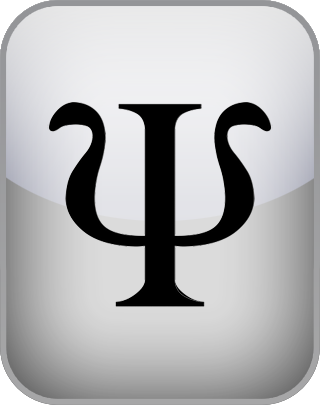Test sugli Stili di Personalità
Questo Test sullo Stile di Personalità con 105 domande ti permetterà di ottenere un punteggio su tutti e 15 gli stili di personalità. Gli stili di personalità rappresentano un aspetto più dinamico e fluido della personalità che le proprietà più strutturate misurate dal Test del Tipo Jung o dal Big Five Test.
Effettuando il test, è normale per i soggetti nella norma sentire che molte delle affermazioni siano applicabili a se stessi. In ogni caso, per ottenere risultati ottimali, NON cliccare su "Sono d'accordo" ad una domanda a meno che non sia legata ad una situazione ricorrente nella tua vita. Se non sei sicuro se un'affermazione sia applicabile o meno, selezione "Non sono d'accordo"
Domanda 1 di 105
Sono un individuo unico che si merita un trattamento speciale.
CONTINUARE
Il "Test sullo Stile di Personalità" è proprietà di IDR Labs International ma rende omaggio agli studi di Theodore Millon, Seth Grossman, Aaron T. Beck, Arthur Freeman e Nancy McWilliams.
The Personality Style Test, based on the research of Dr. Theodore Millon, is a psychological assessment designed to identify and categorize various personality traits and styles. Millon’s pioneering work in personality theory has provided a comprehensive framework for understanding how individual personalities develop, adapt, and sometimes become maladaptive. His model emphasizes that personality is not static but exists on a continuum, with certain traits manifesting in healthier or more dysfunctional ways depending on life circumstances, coping mechanisms, and other factors.
Dr. Millon’s research is rooted in the idea that personality styles are patterns of thinking, feeling, and behaving that individuals use to interact with the world. Unlike traditional models that focus solely on pathological traits, Millon’s approach recognizes that everyone has a blend of personality characteristics that can be adaptive or problematic depending on context. His work on personality is best known for its application in understanding personality disorders, but the Personality Style Test goes beyond pathology to examine how various personality traits manifest across the population.
Millon identified several distinct personality styles, many of which align with broader categories of personality functioning. These styles are mapped along dimensions of interpersonal relationships, emotional expression, and coping strategies. For example:
Compulsive Personality Style: Characterized by a need for order, control, and perfectionism. Individuals with this style are highly disciplined, but they may also struggle with rigidity and difficulty adapting to change.
Dependent Personality Style: Marked by a deep need for approval and support from others, individuals with this style may have difficulty making decisions or functioning independently, relying heavily on close relationships for guidance.
Histrionic Personality Style: Defined by an intense need for attention and approval, people with this style often exhibit dramatic, emotional behaviors and seek validation through social interactions.
Narcissistic Personality Style: Associated with a strong sense of self-importance, individuals with this style often focus on their own needs and seek admiration, but they may struggle with empathy and close relationships.
Millon’s Personality Style Test also includes other styles, such as avoidant, schizoid, and aggressive styles, each highlighting different ways individuals interact with their environments and relationships. The test reveals which personality traits are dominant in an individual’s psychological makeup, offering insights into how these traits influence behavior, decision-making, and interpersonal relationships.
A key aspect of Millon’s work is the understanding that personality styles exist on a spectrum. While someone may exhibit traits associated with a personality disorder, they can still function adaptively if these traits are balanced and not extreme. Conversely, when these traits become rigid or exaggerated, they can lead to maladaptive behaviors and psychological distress.
In summary, the Personality Style Test based on Millon’s research offers a nuanced view of human personality, recognizing the complex blend of traits that define how individuals interact with the world. It’s an essential tool for clinicians and researchers alike, providing valuable insights into both healthy and problematic personality styles.
Nonostante questo test ti potrà aiutare ad avere una panoramica sui tuoi risultati relativi alle diverse scale associate ai 15 stili di personalità, è importante notare che i risultati non sono necessariamente un'analisi effettiva, come quella condotta dal personale medico certificato con il rispondente fisicamente presente e basato su un'analisi dettagliata della storia personale e familiare del rispondente, tra altri fattori.
Si prega quindi di notare che le informazioni fornite da questo sito presentano dettagli psicologici solo per scopi educativi. Le informazioni sono fornite "così come sono" e non devono essere considerati consigli professionali o certificati di qualsiasi tipo. L'editore non fornisce servizi professionali legali, medici, finanziari o di nessun altro tipo. Se hai bisogno dell'assistenza di un esperto, cerca i servizi di un professionista nei luoghi di competenza.
Il "Test sullo Stile di Personalità"© è proprietà di IDR Labs International. Per ulteriori informazioni si prega di consultare i Termini di Servizio.

 English
English  Español
Español  Português
Português  Deutsch
Deutsch  Français
Français  Italiano
Italiano  Nederlands
Nederlands  Polski
Polski  Українська
Українська  Русский
Русский  Türkçe
Türkçe  العربية
العربية  日本語
日本語  한국어
한국어  ไทย
ไทย  汉语
汉语 